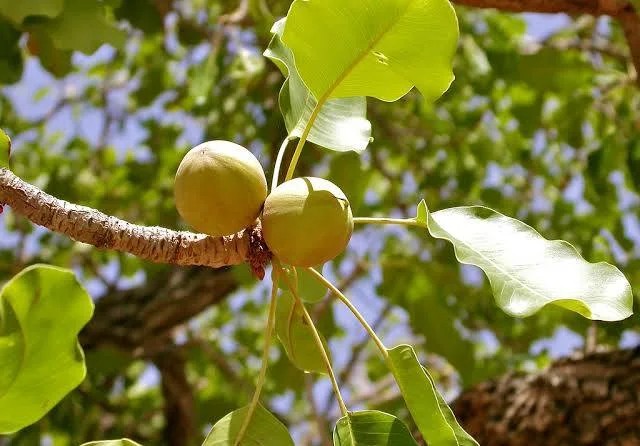In a landmark step to industrialize Nigeria’s agricultural sector and capture more value from natural resources, President Bola Ahmed Tinubu has approved a six-month temporary ban on the export of raw shea nuts (Vitellaria paradoxa).
The directive, which takes immediate effect, was conveyed through the Office of the Vice President. Announcing the decision, Vice President Kashim Shettima said:
“We are not closing doors, we are opening better ones. Today we plant the seeds of an industry that will yield fruit for decades to come—for our women, for our economy, and for Nigeria’s place in global trade.”
The move follows a rapid assessment by the Presidential Food Systems Coordinating Unit (PFSCU), which revealed that Nigeria—despite producing nearly 40% of the world’s shea nuts, an estimated 350,000 metric tonnes annually—captures less than 1% of the global $6.5 billion shea market.
The new policy is designed to halt the loss of over 90,000 metric tonnes of raw shea to informal cross-border trade each year. It will also secure raw materials for local processors, who currently operate at just 35–50% capacity, while boosting jobs and incomes in rural communities where 95% of shea pickers and processors are women.
Eniola Akindele, Data and Impact Assessment Manager at PFSCU, described shea as “Nigeria’s untapped goldmine,” noting its growing global demand as a substitute for cocoa in chocolate and confectionery industries. “With the right processing capacity and investment, Nigeria can transform its underutilized shea value chain into a billion-dollar industry—creating jobs, empowering women, and boosting foreign exchange earnings,” she said.
Stakeholders across the agricultural sector have hailed the directive. Architect Kabir Ibrahim, President of the Nigeria Agribusiness Group (NABG) and the All-Farmers Association of Nigeria (AFAN), called it a “pivotal moment” for agricultural industrialization. “For decades, we exported raw shea nuts only to import finished products at much higher cost. This policy corrects that imbalance and will stimulate local investment, create thousands of jobs, and increase national export earnings,” he said.
Nigeria’s move also aligns with regional trends. Countries like Ghana, Burkina Faso, Mali, and Togo had earlier imposed similar restrictions to protect their industries. Agriculture Minister Abubakar Kyari noted that Nigeria had been the outlier, becoming a hotspot for unregulated buying, but the new ban would change that.
Another stakeholder highlighted the broader regional significance: “The synchronized action across West Africa is a powerful signal to the global market. Africa should not just supply raw materials—we must manufacture and export finished goods. This will give the continent stronger negotiating power and ensure wealth from natural resources benefits local communities.”
Analysts say the ban marks a turning point in Africa’s long struggle to shift from exporting raw materials to creating value through local processing. Stakeholders have, however, urged the government to clarify implementation and enforcement measures to curb smuggling and other risks.
Meanwhile, the government has announced that within three months, Nigerian shea butter and oil will receive prioritized access to the Brazilian market—a development expected to open fresh opportunities for the industry if well leveraged.














